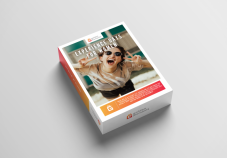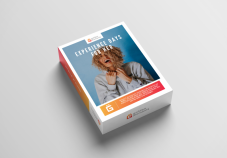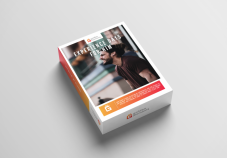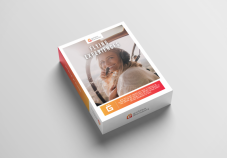
Why experiences beat material rewards for employee happiness
Can a memory outshine a material gift?
Think back to the last time you bought something exciting, like a new gadget, maybe?
Now, compare that to a memorable experience, like a short break or a fun day out with friends. Which one makes you smile more?
If you’re like most people, it’s the experience. And it’s not just you; research shows that experiences bring us more lasting happiness than things. This simple idea can make a huge difference in how businesses recognise and reward their employees.
Give our corporate team a call today on +44 (0) 2393 877130 or email us at [email protected] to discuss how you can introduce a successful rewards and recognition program with Golden Moments!
The science behind happiness: experiences vs stuff
So, why do experiences stick with us while the joy of new stuff fades? It all comes down to something psychologists call 'subjective well-being.' Basically, it’s how we measure our own happiness and life satisfaction. Studies have shown that while buying new things might give us a quick buzz, it doesn’t last. And once we get used to the newness, the thrill wears off.
Experiences, on the other hand, become a part of who we are. They create memories that we cherish and revisit in our minds long after the event is over. This is why a weekend getaway or a activity day often leaves a bigger impact on our happiness than the latest tech toy.
Why experiences matter at work
Keeping your team happy and engaged is no small task, but experiences can make a significant impact. Shared experiences like a team-building day, a company retreat or even a simple group lunch, help people connect on a deeper level. These moments break down barriers, build stronger relationships and create a sense of belonging that’s essential for teamwork.
Plus, offering experiences that contribute to personal growth, like professional development workshops or wellness programs, shows your employees that you value them as individuals. When people feel like their growth is supported, they’re more likely to be motivated, engaged and loyal to your company.
And let’s not forget about anticipation. Just the thought of an upcoming event or reward can boost your team’s morale. The excitement builds before the experience even happens, and the positive memories linger long after, keeping your employees happy and engaged.
How to bring experiential rewards to your company
Switching from material rewards to experiences doesn’t have to be complicated. One of the easiest and most flexible ways to start is by offering gift experience vouchers. These vouchers allow employees to choose an experience that resonates with them — whether it’s a thrilling adventure, relaxing spa day or a day at the races! This personal touch makes the reward more meaningful and memorable.
Here are some additional tips:
# Personalise the experience: Offer a range of experiences that match different interests. Gift experience vouchers give employees the freedom to select what excites them most, making the reward truly personal.
# Match the experience to your office culture: Make sure the experiences you offer fit with your company’s values. If you’re all about innovation, consider sending employees to industry conferences or creative workshops. Gift experience vouchers can also be tailored to align with these values.
# Measure what matters: To see how well experiential rewards are working, ask your employees for feedback and track engagement. Are more people participating? Are satisfaction levels rising? You can then use this data to refine your approach.
Moving from material rewards to experiences can transform your employee recognition program. Experiences don’t just make your employees happier - they create a more connected, motivated and loyal team.
Gift experience vouchers are a simple, flexible way to offer these meaningful rewards. By focusing on experiences, you can build a workplace where people feel truly valued and inspired to do their best work.
What’s your take on employee rewards? Have you tried experiential rewards, or are you thinking about it?
FAQ's:
Why are experiences better than material rewards for employee recognition?
Experiences are better than material rewards because they create lasting memories, develop stronger social connections and contribute more significantly to personal happiness and well-being. Unlike material items, which quickly lose their novelty, experiences are remembered and cherished over time.
How do gift experience vouchers work for employee rewards?
Gift experience vouchers give employees the flexibility to choose an experience that resonates with them. Whether it's an adventure activity, spa day or a day at the races, employees can select an experience that they will truly enjoy, making the reward more personal and memorable.
What types of experiences are most effective in boosting employee engagement?
Experiences that promote personal growth, team bonding or relaxation tend to be most effective. Examples include professional development workshops, team-building activities, wellness programs and fun outdoor experiences like white water rafting.
How can companies measure the success of experiential rewards?
Companies can measure the success of experiential rewards by collecting employee feedback, tracking participation rates in experiential activities and monitoring changes in employee engagement and satisfaction levels. This data can help refine your reward program to better meet your employees' needs.
How do experiential rewards align with company culture?
Experiential rewards can be tailored to reflect the values and culture of the company. For instance, a company that values innovation might offer experiences related to creativity, such as attending industry conferences or workshops. This alignment reinforces the company's culture while rewarding employees in a meaningful way.
Here at Golden Moments, we can provide you with a range of corporate packages designed to positively impact your relationship with your employees as well improve your customer base and achieve your business goals.


























